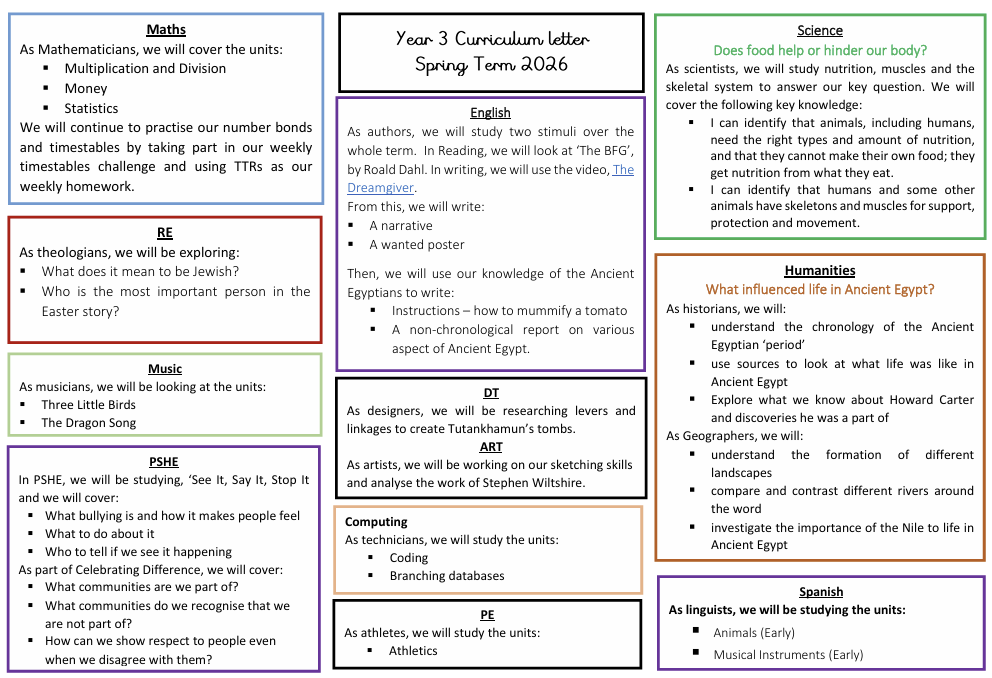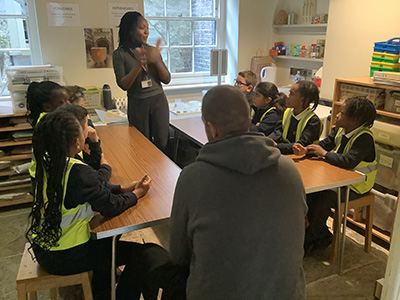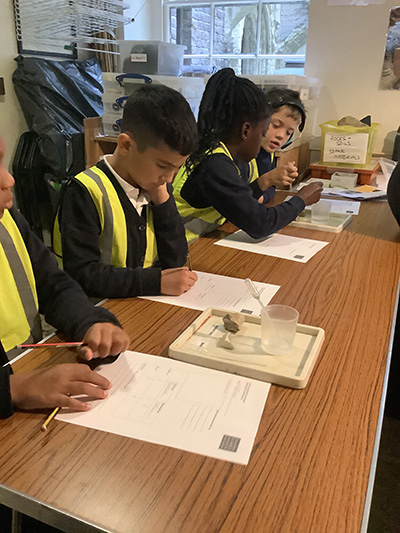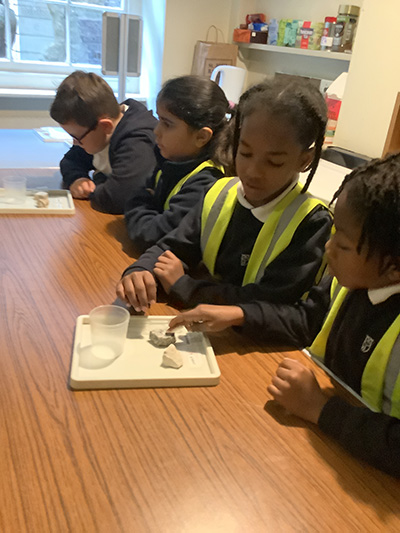Hello and welcome to the Year 3 page! This is where you will find all the information you need to know about what we will be doing in Year 3 this term. There is so much to look forward to this year!
Remember: it's really important to be at school every day, on time and ready to learn.
PE: Year 3’s PE is on a Tuesday morning. Please come to school in your PE kits
Spring Curriculum Letter

Year 3 Visit to the Sir John Soane Museum



Supporting Learning at Home
Homework
Homework is sent out every Friday and should be completed by the following Friday. Please remember that your role is to support the children - not do the work for them.
Homework is set online using TT Rockstars and Spelling Shed. Log on each week to see your set activities. Your child will have their passwords at home.
If you need any help with the homework or passwords then please come and chat to me, I am always happy to go through it with you.
Reading
Children need to read at home every day, ideally with an adult. Your child will take home a book that is appropriate for their reading level and we ask that they record a comment each day in their yellow reading journal and return this to school. Reading journals are checked daily so that we know how well a child is engaging with the book and when it needs changing. If your child is struglging with a particular book please let us know.
Other Useful Websites
Busy Things
Times Tables Rock Stars
SpellingShed